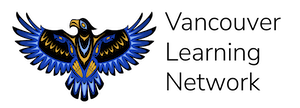AP Psychology 12
AP Psychology Course Overview
Big Ideas
Concept Understanding Define, explain, and apply concepts, behavior, theories, and perspectives. | Data Analysis Analyze and interpret quantitative data. | Scientific Investigation Analyze psychological research studies. |
From: https://apcentral.collegeboard.org/courses/ap-psychology
Introduction
AP Psychology is an introductory college-level psychology course. Students cultivate their understanding of the systematic and scientific study of human behavior and mental processes through inquiry-based investigations as they explore concepts like the biological bases of behavior, sensation and perception, learning and cognition, motivation, developmental psychology, testing and individual differences, treatment of abnormal behavior, and social psychology.
Where does this course fit?
- Prerequisites: English 10 reading level, and completion of Science 10.
- Graduation Status: This course counts as a grade 12 elective towards graduation credits.
- An optional AP exam in May (requires exam fee) where a score of 4 or 5 may be used as university course credit.
Course Materials
- This course utilizes the learning materials provided in AP Classroom, which students will be able to access after they begin the course.
Brief Outline
Unit | Description |
Scientific Foundations of Psychology | Psychology is the scientific study of behavior and mental processes. We examine the history of psychology and psychological theories, contemporary perspectives on psychology, and how psychological research is conducted. |
Biological Bases of Behavior | The structures of human biological systems and their functions influence our behavior and mental processes. We learn about the influence that the interaction between human biology and our environment has on behavior and mental processes. |
Sensation and Perception | We study sensation and perception to explain how and why externally gathered sensations and perceptions impact behaviors and mental processes. |
Learning | We focus on how humans and other animals learn and how some experiences can lead to changes in behavior. |
Cognitive Psychology | Knowledge surrounding sensation, perception, and learning provides the foundation for an understanding of cognition. |
Developmental Psychology | Developmental psychology encompasses the study of the behavior of organisms from conception to death. In this unit, students will learn to examine the processes that contribute to behavioral change throughout a person’s life. |
Motivation, Emotion, and Personality | Psychologists use theory to categorize and explain different personalities. These explanations have been influenced by the various branches of psychology. |
Clinical Psychology | Psychologists attempt to explain the origin of a disorder and/or determine the best method for treatment. These explanations and treatments build on the history, theories, and perspectives of the entire history of psychology. |
Social Psychology | Psychological concepts and theoretical perspectives are pulled together from throughout the course. Social psychology is the study of how other people and groups influence behavior and mental processes as well as how behavior and mental processes influence our experiences in social situations. |
Assessment Percentage Breakdown
Assessment Type | Percentage of the Course |
Assignments | 45% |
Quizzes | 15% |
Midterm exam | 20% |
Final exam | 20% |
You have up to a year to complete your course.

